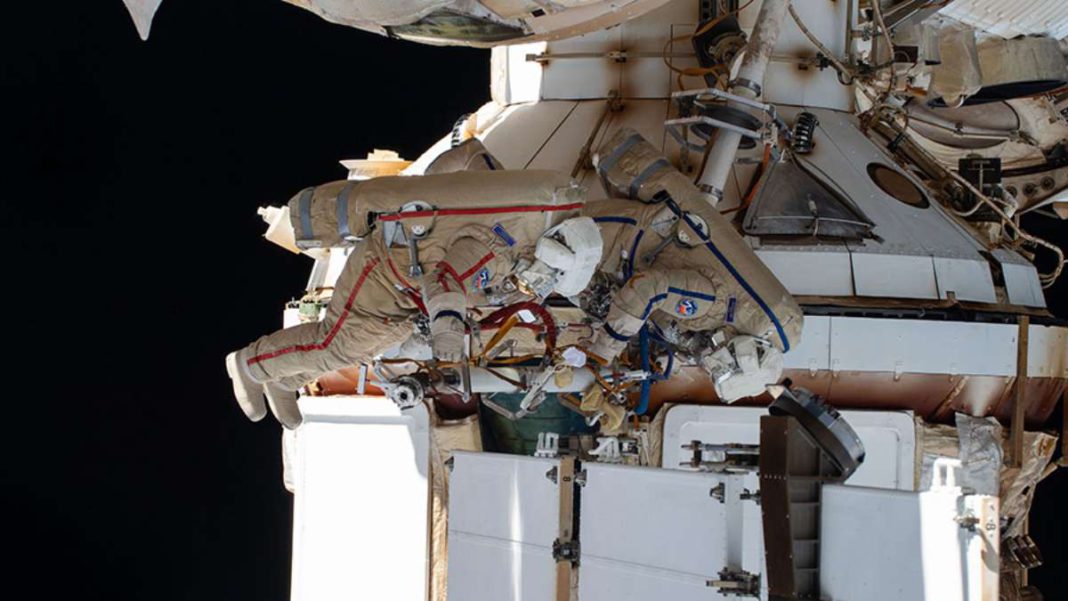RUSSIA: Russian cosmonauts Oleg Kononenko and Nikolai Chub made a remarkable discovery while inspecting a radiator coolant leak that had been plaguing the space station. This incident unfolded on October 25, 2023, during Expedition 70, and the findings are poised to provide crucial insights into the ongoing challenges of maintaining the ISS.
The primary objective of the spacewalk was to isolate and document the radiator, which had been leaking coolant since October 9. This radiator serves as a backup to the main body radiator responsible for regulating the temperature within Russia’s Nauka multipurpose laboratory module.
While working on configuring various valves to disconnect the external radiator from its ammonia supply, the cosmonauts noticed an unexpected accumulation of liquid coolant. This formation, which they described as a ‘blob’ or ‘droplet,’ prompted further investigation.
Oleg Kononenko observed numerous small holes in the radiator’s panels and described them as having “very even edges like they’ve been drilled through,” stating, “There are lots of them. They are spread in a chaotic manner.”
The ‘blob’ seems to have developed from ammonia residue that was disturbed during the valve closing procedure. Given the toxic nature of ammonia, the cosmonauts were well-prepared, equipped with tissues and cloths to clean their spacesuits and tools to prevent any contamination within the ISS.
The data collected during the spacewalk will now undergo thorough examination by Russian engineers on the ground. This analysis aims to determine the precise cause of the radiator coolant leak and the necessary steps to restore it for future use on the ISS. This incident highlights the complex challenges of maintaining a space station in orbit, with unexpected issues demanding prompt solutions.
In addition to addressing the radiator coolant leak, Kononenko and Chub engaged in other activities during their spacewalk. They worked on installing a synthetic radar communications system intended for monitoring Earth’s environment. This marked the first scientific payload mounted on the Nauka module’s exterior.
Furthermore, the cosmonauts released a cube-shaped nanosatellite designed to test an experimental solar sail deployment method. Regrettably, the satellite’s solar wings did not extend as planned.
The spacewalk, which lasted an impressive 7 hours and 41 minutes, concluded when the airlock hatch of the Poisk module was closed at 9:30 p.m. Eastern Daylight Time (EDT) on October 25. This mission marked the 268th extravehicular activity (EVA) in support of space station assembly, maintenance, and upgrades.
Nikolai Chub made his first-ever spacewalk during this mission, while Oleg Kononenko added another feat to his already impressive space career, totaling 41 hours and 43 minutes of work in Orlan spacesuits in space.
Also Read: Post-Soviet Era Russian Cosmonaut Alexander Viktorenko, Passes Away at 76



